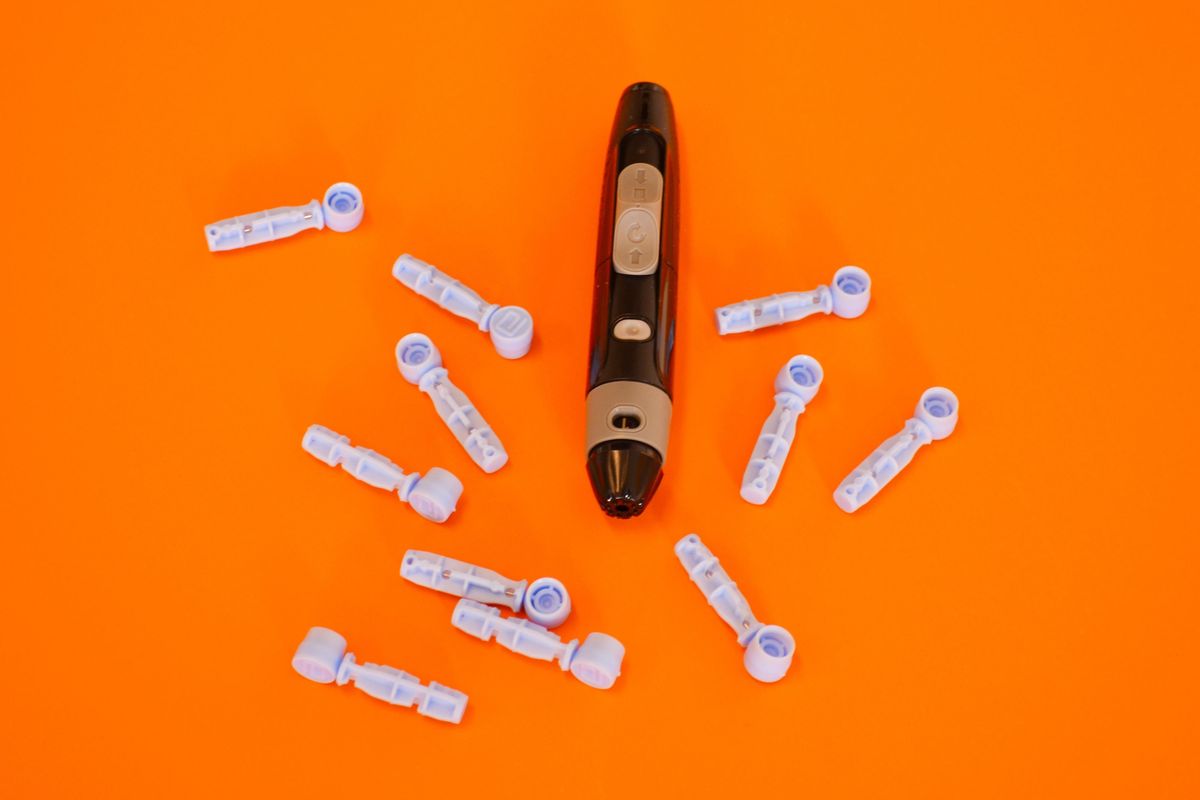Could Your Apple Watch Check Your Blood Glucose Levels? The Technology is Closer Than You May Think
Keerthi Vedantam is a bioscience reporter at dot.LA. She cut her teeth covering everything from cloud computing to 5G in San Francisco and Seattle. Before she covered tech, Keerthi reported on tribal lands and congressional policy in Washington, D.C. Connect with her on Twitter, Clubhouse (@keerthivedantam) or Signal at 408-470-0776.

Wearable technology has come a long way.
The Apple Watch — often touted as a way to help people monitor their steps and sleep — may soon be able to check your blood sugar levels, making it more akin to a medical device.
Rockley Photonics, a photonic sensor company based in Pasadena, has been quietly working on small blood sensors that can be affixed to wearables and parse alcohol intake, blood sugar and glucose levels. Its biggest customer according to a story from the Telegraph is none other than Apple.
The technology reportedly uses sensors on the back of a smartwatch to shine light through the skin in order to assess blood. Apple and another unnamed company account for as much as 100% of Rockley Photonics' revenue, according to SEC filings.
Neither company replied to requests for comment.
Glucose monitors, once used primarily by diabetics, are reaching the masses. Increasingly companies are offering glucose monitoring services as the obsession with micromanaging one's health grows.
January.ai is a California-based metabolism tracker startup that provides continuous glucose monitors (CGMs) to subscribers, and uses AI to predict what kind of exercise users need to maintain their health. The sticker price for a package is $488. Another —Levels — pairs with an existing CGM to track one's glucose levels at $395. With the added cost of sensors that need to be ordered frequently, these services are out of reach for many, especially for those with type 2 diabetes which has a high correlation with poverty.
What makes glucose monitors more attractive than traditional blood tests is that they continuously track, allowing users to see which foods spike their blood sugar, since different foods have varying results on individuals.
It is unclear if Apple will use this blood sugar monitor the same way January.ai has, but the company (and Rockley) are toeing the line between a consumer health wearable and an actual medical device, which would need to get approval from the Food and Drug Administration. It's a process that could take years to complete, which is incompatible with Apple's typical innovation cycles.
The advent of 24/7 blood sugar monitors that have smartphone capabilities for people to store, track and send data, have been a game changer for diabetics and physicians — doctors can more accurately treat patient health.
"There's also patients who are eating right and are taking all their medicines as prescribed and sometimes putting a CGM on them shows us that, 'oh wow, we've been just treating this patient incorrectly'," said Khan.
But dedicated glucose monitors aren't always reliable — Dexcom came under fire in 2019 when its system stopped notifying patients when their blood sugar was too high or too low, and a parent monitoring their children's diabetes said he was afraid to drop her off at school in case the system failed again.
"These wearable technologies are only as useful to the patients as they are accurate and precise," Khan said. "But because they're so fine-tuned to our diabetes patients, they're a lot less prone to error."
"I certainly wouldn't tell my patients to dose their insulin based on what their Apple Watch is telling them," Khan said. "I would tell them to trust their sensor or trust their fingerstick."
- biosciencela - dot.LA ›
- Rockley Photonics Earnings Linked to Production of Wearables - dot.LA ›
- Virta Health’s Sami Inkinen on How Diabetes Is Perceived - dot.LA ›
- How Physicians Are Using Digital Devices To Track Patients - dot.LA ›
- Health Tech Companies In Los Angeles - dot.LA ›
Keerthi Vedantam is a bioscience reporter at dot.LA. She cut her teeth covering everything from cloud computing to 5G in San Francisco and Seattle. Before she covered tech, Keerthi reported on tribal lands and congressional policy in Washington, D.C. Connect with her on Twitter, Clubhouse (@keerthivedantam) or Signal at 408-470-0776.





 Image Source: Skyryse
Image Source: Skyryse